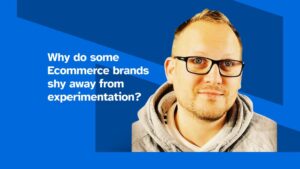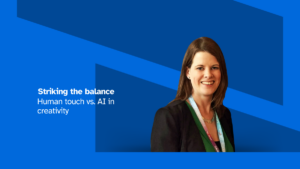NDA has launched a new series featuring opinions from interns and first jobbers in the digital industry to find out what we can learn from their fresh perspectives on some of our industry’s biggest issues.
First up is Poppy Brady, who has started on Canton Marketing‘s new remote internship program,
The Social Dilemma VS Reality
I am your typical social media user. A 20 something year old woman, with a desire to be valued through those insignificant (yet wholly significant) like buttons that live on our apps. A typical evening in lockdown for me would consist of opening Facebook, having a scroll, closing the app and repeating this process with Twitter, Instagram and TikTok.
And if that wasn’t sufficient for my media fix, I would almost immediately start the process again. I would browse across gossip columns and aimlessly online shop, only to be offended when Facebook offered me an advert for ASOS.
Cookies were merely a delicious snack and my personal data didn’t extend beyond my home address and mobile number; but then I watched the Netflix documentary, The Social Dilemma.
Suddenly I saw my phone in a whole different light; areas of the technology industry that I previously knew nothing about were introduced. At once, my mind was racing thinking about the large corporations that were stalking my life via my phone, and every inch of my online presence was being watched.
I began to think that those people who believe their Amazon Alexas were listening to them were right! In truth, I was able to see and believe how my opinions of certain brands, products and topics could be swayed by the media I was choosing to consume. I’d be lying if I said I hadn’t clicked on countless Instagram adverts for expensive brands I can’t even dream of affording, purely on the basis that it came up on my feed.
Mental health threats
Yet unbeknownst to me, on the other side of the screen, strings were being pulled, targeting this advert to people that fit my description. The documentary drives home the truth that, as the social media industry has grown, so has the number of teenagers battling mental health struggles.
Personally, I have suffered negatively from my consumption, yet it never crossed my mind that these large companies were potentially going beyond what was ethically right, in order to infiltrate my conscience. The notion that artificial intelligence has outgrown the minds of the engineers that invented it, is scary to those of us who would call ourselves laymen in the world of digital marketing.
I have always denied any addition to my phone, claiming I could easily live without it if I needed too. However, post-documentary I instantly switched off all her notifications from social media apps, with genuine fear that I was dependent on the rectangular piece of metal that is never more than a meter away from me. However, I am now in the privileged position to be learning about ‘reality’.
Enthusiasm not apathy
Since starting my internship with a digital marketing consultancy, I have been introduced into the taboo world of cookies and digital footprints, which were negatively highlighted in the documentary. Instantaneously, I was struck by the change of tone used when talking about the online world; words were said with enthusiasm rather than apathy.
I learnt that online marketing is less about manipulation, and more about persuasion; telling audiences why they need a product, instead of telling them they must have a product. Now when I see adverts online, I think of the impressive technology that has been utilised to drive advertising based on my search history.
I have a deeper comprehension of the advantage of applying social media analysis within a company’s marketing strategy, and can recognise the demand for the optimisation of online media throughout the industry.
Contrary to this, The Social Dilemma has left my conscious mind questioning the conduct of corporations. I find it hard to believe that companies can still be ambivalent to the statistics shown, that speak of the adverse mental effects experienced by everyday users. I myself was naive to the fact that the process of ‘tracking’ online presence has been around for decades, and I am sure there are many others in the same boat who could feel they are a cameo in George Orwell’s narrative.
This isn’t new science!
To those of you who joined me in turning off all notifications from social media apps, we are being scaremongered to believe that marketers should be feared. Instead we should think about the incredible and complicated numbers, letters and symbols that weave together to form the tapestry of code that makes up social media, allowing our favourite brands to tailor adverts to deliver us exactly what we desire.
Above anything, my journey into the online marketing world has proven to me that technology isn’t to be feared, as long as it can be utilised positively. American computer philosopher, Jaron Lanier said “the most important thing about technology is how it changes people”, and if all consumers were educated like I have been, the changes we will see in people will be absolute.
As products of our own choices, we need all media users to choose to be informed rather than ignorant regarding the digital marketing world.









